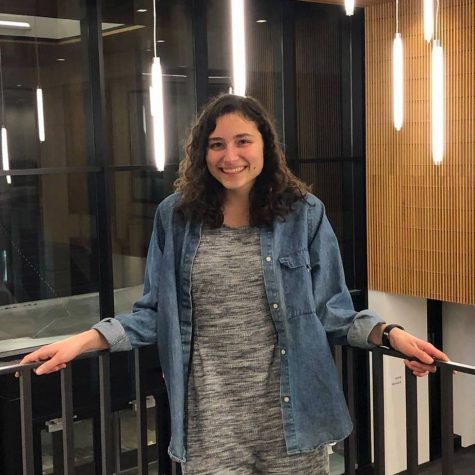MCSG Overseer: MCSG discusses increasing voter participation

February 13, 2020
This week’s MCSG meeting began with a presentation on Macalester’s budget for this fiscal year from Vice President for Administration and Finance David Wheaton. The budget, which the Board of Trustees approved at its last meeting, aims to maintain a steady financial foundation for the incoming president.
Wheaton highlighted some promising context for Macalester’s financial prospects: The U.S. economy is continuing its steady growth, and as of now, revenue from tuition is high (mostly due to the large sophomore class).
He pointed to a few challenges, as well: small, private, liberal arts colleges around the country are experiencing increased pressure to keep enrollment up and prices down. The price of tuition and fees for the next academic year will rise from $68,884 to $71,562. Of the college’s total tuition, 55 percent will be discounted through financial aid. Wheaton noted that if tuition keeps going up at this rate, it will reach almost $100,000 in 2030.
“I don’t think that’s sustainable,” Wheaton said. “This is an industry problem… there will be generous financial aid all the way through this period, but I find [those tuition hikes] daunting.”
Despite the long-term challenges facing small private colleges, Wheaton said that Macalester is financially sound, with plenty of money in its savings.
After the budget presentation, members of the Legislative Body (LB) brainstormed goals for the coming semester. Multiple members said they wanted to work more on accessibility and disability services on campus. Academic Affairs Committee (AAC) member Karinna Gerhardt ’20 cited a need to create a survey on accessibility and accommodations by the end of the semester.
Several members suggested shifting the procedures of MCSG itself to make it easier for members to participate. Financial Affairs Committee (FAC) member Jason Kohn ’20 pointed to a few current concerns.
“MCSG is draining and we have really high attrition rates,” Kohn said. “I think everyone in the room knows this to be true. There’s a lot of bureaucracy and a lot of repetitiveness that goes into our meetings.”
MCSG Chief of Staff Diana Paz Garcia ’21 suggested “making MCSG a less bureaucratic system, and making it a nicer environment, less hostile.”
Other students brought up cooperating with more student orgs, addressing sexual violence and working with Title IX and creating more spaces on campus for people of color and undocumented students.
After discussing those goals, Diversity & Inclusion Officer Robert Green ’23 presented a proposal for a new committee called Inclusion, Diversity and Equity Advancement (IDEA). This group would consist of four appointed students led by the Diversity & Inclusion Officer.
The committee would work with the Student Services & Relations Committee (SSRC), Financial Affairs Committee (FAC) and Program Board to champion inclusion and diversity in their projects.
“We have to have diversity perspectives and feedback coming from every way,” Green said.
Green also suggested that this committee could serve as a compromise for last week’s debate over whether the Diversity & Inclusion Officer position should be elected or appointed; according to the IDEA plan, the Diversity & Inclusion Officer would continue to be elected, but the other members of the committee would be appointed.
Several members voiced their support for IDEA, noting that this type of project had been proposed by various past Diversity & Inclusion Officers. Some raised concerns about IDEA’s structure, which Green said was not yet finalized.
“It’s still being defined,” Green said. “I really want to sit down with each chair and see what they need and what this bill needs to… create space for each committee.”
The LB then moved into a conversation on increasing voter turnout in MCSG elections. Ideas ranged from informational tables in the Ruth Stricker Dayton Campus Center to changing times and locations of candidate forums to setting up a dunk tank where students can dunk college President Brian Rosenberg if they show that they voted.
The LB voted 25-0 to form an ad-hoc committee for voter engagement, which SSRC member Rebecca Gentry ’23 volunteered to chair.
The last order of business was to address Mac First Aid’s request for an additional $2,290 to cover increased CPR class registration. The LB voted to fund the request in full, with 22 voting in favor and three abstaining.












